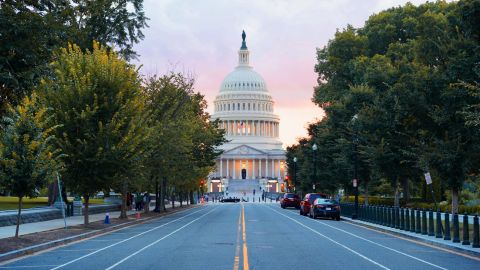ASBMB endorses the IGNITE HBCU, TCU, and MSI Excellence Act
The American Society for Biochemistry and Molecular Biology endorsed the IGNITE HBCU, TCU and MSI Excellence Act on Oct. 13 as part of its continued efforts to advocate for legislation aimed at increasing research capacity at minority-serving institutions. If the bill becomes law, the secretary of education must create a grant program for infrastructure at historically Black colleges and universities, tribal colleges and universities, Hispanic-serving institutions and other MSIs.
Over 700 MSIs educate and serve students who come from historically marginalized racial groups. Together, these institutions produce one-fifth of the nation's STEM bachelor's degree holders. However, despite being leaders in producing diverse talent, these institutions that are congressionally mandated to receive federal appropriations continue to be chronically underfunded by the federal government.
Most MSIs were established originally to educate students prohibited from attending majority-serving institutions. It wasn’t until the Higher Education Act of 1965 was amended in 1986 and 1992 that HBCUs and HSIs, respectively, began getting federal appropriations.
Unlike majority-serving institutions, MSIs do not have large endowments gifted by former alumni because systemic wealth inequality has persisted for historically marginalized racial groups. This disparity leads MSIs to rely heavily on federal and state funding. Additionally, states chronically underfund public MSIs.
A 2018 Government Accountability Office study on the HBCU Capital Financing Program found that 46% of their building space, on average, needs repair or replacement and identified significant project needs in the areas of deferred maintenance, facilities modernization and preservation of historic buildings.
The Hispanic Association of Colleges and Universities conducted a similar study in 2019 and found that over nine in every 10 HSIs need funding for construction of new buildings, facilities and classrooms and for renovations.
That same year, the House committee on education and labor released a report highlighting systemic underfunding of HBCUs, TCU and other MSIs and recommending that Congress establish a grant program as proposed in the IGNITE Act.
The IGNITE Act has been endorsed by the House Congressional Tri-Caucus — composed of the Congressional Black Caucus, Congressional Hispanic Caucus and Congressional Asian Pacific American Caucus. In a press release last week, the co-chairs of the Tri-Caucus said:“This legislation invests in our HBCU, TCU and MSI facilities to give students state-of-the-art learning environments and enables these institutions to continue to be a critical source of diversity in the workforce for another century and beyond."
In its endorsement of the legislation, the ASBMB wrote: “The ASBMB supports this legislation’s focus on expanding research capacity at MSIs because increased funding will support ASBMB members at those institutions and support students from historically marginalized backgrounds who are seeking to participate and pursue careers in scientific research.”
Enjoy reading ASBMB Today?
Become a member to receive the print edition four times a year and the digital edition monthly.
Learn moreGet the latest from ASBMB Today
Enter your email address, and we’ll send you a weekly email with recent articles, interviews and more.
Latest in Policy
Policy highlights or most popular articles

Councilors advocate for science on Capitol Hill
ASBMB Councilors meet with their elected officials to advocate for basic scientific research funding and training the next generation of scientists.

Hope for a cure hangs on research
Amid drastic proposed cuts to biomedical research, rare disease families like Hailey Adkisson’s fight for survival and hope. Without funding, science can’t “catch up” to help the patients who need it most.

Supporting science through advocacy and community building
ASBMB calls on scientists to take action as funding cuts and policy shifts threaten the U.S. research enterprise, emphasizing the power of community advocacy and persistence in protecting the future of science.

Seven steps to advocating in your home state
Find out how to schedule, prepare for and conduct a productive district office meeting to communicate the importance of fundamental scientific research funding to your representatives.

ASBMB members call for funding and agency support amidst uncertainty
In 60 meetings on Capitol Hill, scientists urge legislators to reaffirm support for scientific innovation

Embrace your neurodivergence and flourish in college
This guide offers practical advice on setting yourself up for success — learn how to leverage campus resources, work with professors and embrace your strengths.

